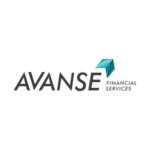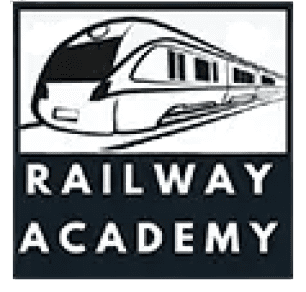150+ hours | Blended Program | In-Campus Immersion
Executive Post Graduate Certificate in Rail Management
In collaboration with IIM Kashipur
We have designed this Post Graduate Certificate course for rail professionals to develop world class management competency, to plan and build secure railways of the future.


Are You Interested In the Program?
Connect with an advisor for a 1:1 Session.
Batch
01
Learning Format
Online/Live
Live Classes
11 Months
Starts
27th January 2024 | Weekend Program
IIM Kashipur
Certification
About The Program
Key Highlights
- 150+ hours of live online training led by experienced industry professionals
- 10+ industry projects and case studies to apply your learning to real-world scenarios
- Weekend classes to suit the schedules of working professionals
- A complimentary rail industry orientation course worth INR 25,000/-
- 50+ live sessions spread across 11 months
- A campus immersion program at IIM Kashipur
- Opportunities to learn from IIM Kashipur faculty and rail industry practitioners
- One-on-one mentoring with industry mentors & Placement assistance to help you land your dream job in the rail industry
Are You Interested In the Program?
Connect with an advisor for a 1:1 Session.
Who can Apply?
This is a Post Graduate Certificate program, so here are a few pre-requites:
- Individuals with a bachelor’s degree and a keen interest to learn Rail Management.
- Engineering professionals looking for a industry specialisation in railways.
- Rail Professionals aiming to move ahead in their career around Rail Management roles.
- Project Managers looking for transition in rail industry.
Why Rail Management is next big opportunity area for rail professionals and technology enthusiasts?
New Age Rail needs New Age Leaders
Massive expansion projects going on around the world in railways are creating opportunities for rail management leaders with digital skills.
Global demand of Rail Management Professionals
Qatar Rail, Network Rail (UK), Singapore and Middle Eastern countries are expanding rail networks to improve their infrastructure and economies. This means they are expected to catalyze huge demand for rail management professionals.
Rail Modernisation is catalysing demand for Rail Management
Metro industry is moving towards modern digital systems and data driven systems. There are 50+metro rail projects presently running in the country. These create opportunities for Railway Engineers with management acumen.
Rail Cybersecurity Market to grow to 16BN USD by 2030
Growing demand for Network Security, Application Security, Data Protection, End Point Protection, System Administration around the world has had a direct impact on the growth of the Railway Cybersecurity Services fueling the market growth.
Leading Rail Companies preparing to address this evolving market
Major vendors in the Global Railway Cybersecurity Market include Thales Group, Bombardier, iemens AG, Alstom, Huawei, IBM, Cisco, Nokia Networks, General Electric, Hitachi, United Technologies.
IOT, AI and GOA4 technologies will fuel demand for rail cybersecurity professionals
Increase in adoption of automation & IoT technologies in the transportation sector has increased the demand for rail and metro cyber security. Automation & IoT technologies help to determine the real-time information about the surroundings. In addition, threat of system hacking is present as the system can be accessed through internet. Therefore is expected to fuel the demand for rail cybersecurity professionals.
There will be a huge demand for rail professionals who understand and appreciate rail cybersecurity. This is an integral part of rail management operations; Application areas where rail cybersecurity professionals will be needed in the future.
Digital Transformation in Rail Management.
Transport Management
Railway Project Management
Railway Technology Management
Logistics & Supply Chain Management
Auto CAD
Engineering Scale Plan
Signal Interlocking Plan
Track circuit bonding Plan
Track circuit bonding Plan
Get Certified by IIM Kashipur
ABOUT THE INSTITUTE
IIM Kashipur
IIM Kashipur
The Indian Institute of Management Kashipur is a premier business school established in 2011 with a mission to drive academic excellence through innovative teaching methods, promoting research and the practice of sustainable leadership. The institute envisions becoming one of India’s top business schools within the next decade, developing globally competent leaders who can make a significant impact on the world stage. IIM Kashipur’s core values of mutual respect, lifelong learning, the pursuit of excellence, transparency, and integrity guide every aspect of its operations.
– The faculty at IIM Kashipur represents one of the best mixes of academic and industrial experiences.
Meet Our Faculty



Are You Interested In the Program?
Curriculum
Download BrochureRailway Fundamentals & Operations
Financial Management
Logistics & Supply Chain Management
Transport Management
Railway Technology Management
Innovation, Effective Communication & Strategy
Procurement, tendering and cost management in Railways
Marketing & Business Development
International Rail Environment & Intercontinental Rail Connectivity Projects
Human Resource & Leadership Development
Digital Transformation in Railways
Railway Project Management
Curriculum
Download BrochureRailway Fundamentals & Operations
Financial Management
Logistics & Supply Chain Management
Transport Management
Railway Technology Management
Innovation, Effective Communication & Strategy
Procurement, tendering and cost management in Railways
Marketing & Business Development
International Rail Environment & Intercontinental Rail Connectivity Projects
Human Resource & Leadership Development
Digital Transformation in Railways
Railway Project Management
Curriculum
Programs Highlights
01. Post Graduate Certificate Diploma Program of 150+ hours of live online training
02. 10+ Industry Projects & Case Studies
03. Weekend Classes to suit working professionals
04. Complimentary Rail Industry orientation course worth INR 25,000/-
05. 50+ Live sessions across 11 months
06. Campus Immersion at IIM Kashipur
07. Learn from IIM Kashipur Faculty & Rail Industry Practitioners
08. One-on-One with Industry Mentors & Placement Assistance
Are You Interested In the Program?
Connect with an advisor for a 1:1 Session.
Hear from Our Learners

Arindam Banerjee
Engineer at Hitachi Rail STS
It was a beautiful and an amazing journey with Railway Academy during the 100 Hours online certificate training in Railway Signalling for Railways and Metro. Our trainer has been supportive and really helpful. This training helped many of us to refresh our knowledge and skills on Signalling Concepts, Principles of Interlocking, Electrical & Relay Interlocking systems, Table of Control,out door design,SIP and ESP preparation, Electronic Interlocking, Modern Signalling, etc. Railway Academy has made a big impact. Thanks to all involved.

Prahlad Ghosh
Project Officer | WEBFIL LTD.
It gives me immense pleasure that I have completed "100 Hours Online Training in Railway Signaling for Railways" from Railwayacademy and finally achieved the certification. The Training course was very well-structured, informative and explanation with lots of Daily Use-Cases examples. It has certainly enhanced my Skillset & Knowledge about Advanced Signaling Concepts, Principles of Interlocking, Electrical & Relay Interlocking systems, Point Operations & Table of Control. I would certainly try to implement the learnings in our current project & in the future project opportunities. I would personally to thank the entire team of Railwayacademy and Special Thanks & Regards to Narayan Parvatikar Sir for the trainings and the individual attention towards every student. Thank You Railwayacademy.

Kirankumar Lingegowda
Lead Engineer, QuEST, GmBH
It was a beautiful and an amazing journey with Railway Academy during the 100 Hours online certificate training on Railway Signalling for Railways and Metro. Our trainer has been supportive and really helpful. This training helped me to enhance my knowledge and skills on Signalling Concepts, Principles of Interlocking, Electrical & Relay Interlocking systems, Point Operations & Table of Control, Electronic Interlocking, Modern Signalling, etc. Railway Academy has made a big impact.

Shahid Inamdar
Senior Executive – Design & Drawing, Vijaywargi Infra Engineers Pvt. Ltd.
It's a great experience with Railway Academy. The 100 Hours online certificate training in Railway Signaling for Railways and Metro helped us enhance our knowledge and skills on various aspects on Signaling. It also helped us learn about Principles of Interlocking, Electrical & Relay Interlocking systems, Point Operations & Table of Control, Electronic Interlocking, Modern Signaling, etc. This will definitely help me in my career.

Subhuti Vyas
Signalling Engineer and design works, DB Engineering & Consulting
It gives me immense pleasure that I have completed 100 hours of online training in Railwayacademy and finally achieve the certification. The training course was very well structured, informative and explanation. It has certainly enhance my skills and knowledge about Signaling Concepts, Principles of Interlocking, Modern Signaling, and Relay interlocking, point operational, table of control. I would certainly try to implement learnings in our current project and in future project opportunities. I would personally thank the entire team, special thank you regards to Narayan Parvatikar Sir for training and individual attention toward every student. Thank you so much.

Sanoj Kumar
MAINTENANCE ENGINEER (HITACHI RAIL STS)
I have completed 50hrs online Railway Signalling Design course . Mentors of Railway Academy are very good and helpful. Through this online training course I improved my knowledge and skills in Signalling concepts, Interlocking principles,SIP & ESP preparation, Table of Control. Railway Academy is very helpful for me. Thanks Railway Academy.

Priyanshu Jain
Railway signalling, Electronic Interlocking, Site Engineer, Hitachi Rail STS
Thank you so much Railway academy for gave the good and valuable time to us to Increased the knowledge and skills of railway signalling. You've made a big impact!

DINESH KUMAR THANGAMARIAPPAN
MIRSE | Solutions Engineering Manager | Frauscher Sensor Technology
Learning never exhausts the mind”. During the first half of this year, I had great opportunity to interact, collaborate and learn. Functional Safety for Railways and Metro from Railwayacademy. Thank you for all the support and encouragement.
Railway Academy Advantages
1
Employability &
Career Growth Courses
- Get certified by international bodies to differentiate yourself
- Learn relevant and in demand courses & topics
- Learn from Industry Experts with 20+ years of experience
2
Employability &
Career Growth Courses
- Get certified by international bodies to differentiate yourself
- Learn relevant and in demand courses & topics
- Learn from Industry Experts with 20+ years of experience
3
Employability &
Career Growth Courses
- Get certified by international bodies to differentiate yourself
- Learn relevant and in demand courses & topics
- Learn from Industry Experts with 20+ years of experience
Railway Academy Advantages
- Get certified by international bodies to differentiate yourself
- Learn relevant and in demand courses & topics
- Learn from Industry Experts with 20+ years of experience
![]()
![]()
- Get certified by international bodies to differentiate yourself
- Learn relevant and in demand courses & topics
- Learn from Industry Experts with 20+ years of experience
![]()
![]()
- Get certified by international bodies to differentiate yourself
- Learn relevant and in demand courses & topics
- Learn from Industry Experts with 20+ years of experience
![]()
![]()
Our Alumni work in world’s top railway companies













Admission Process
Submit Application
Tell us a bit about yourself and why you want to join this Post Graduate Certificate Diploma program.
Application Review
An admission panel will shortlist candidates based on their application.
Application Review
Selected candidates will be notified within 1-2 weeks.
(For Indian Students)
Fee Structure
Installment Schedule
| Payment | Amount | Amount | Payment Deadline |
|---|---|---|---|
| 1st | INR 60,000 + GST* | $1600 | Immediately |
| 2nd | INR 60,000 + GST* | $1200 | Within One week of Offer Rollout |
| 3rd | INR 60,000 +GST* | $1200 | 20th February, 2024 |
EMI Offer
Low Monthly Payment Option Made Available by our Loan Partner:
- Pay as low as INR 15.334 + GST* per month for 11 months.
- Total amount paid over 11 months: INR 180,000 + GST

Get Started Today
Executive Post Graduate Certificate in Rail Management
₹180,000.00/- + GST
Get Started Today
Executive Post Graduate Certificate in Rail Management
₹180,000.00/- + GST
Program Cohorts
Connect With an Advisor for A 1:1 Session
Email
[email protected]
Phone
Priyanka +91 9876543210
Fill the form to get a call back form our team. Looking forward to your presence!
Still not sure? Take our 2-hour free course on rail cybersecurity.
The course will teach you the basics of rail cybersecurity, its applications and if it is relevant for you.

















